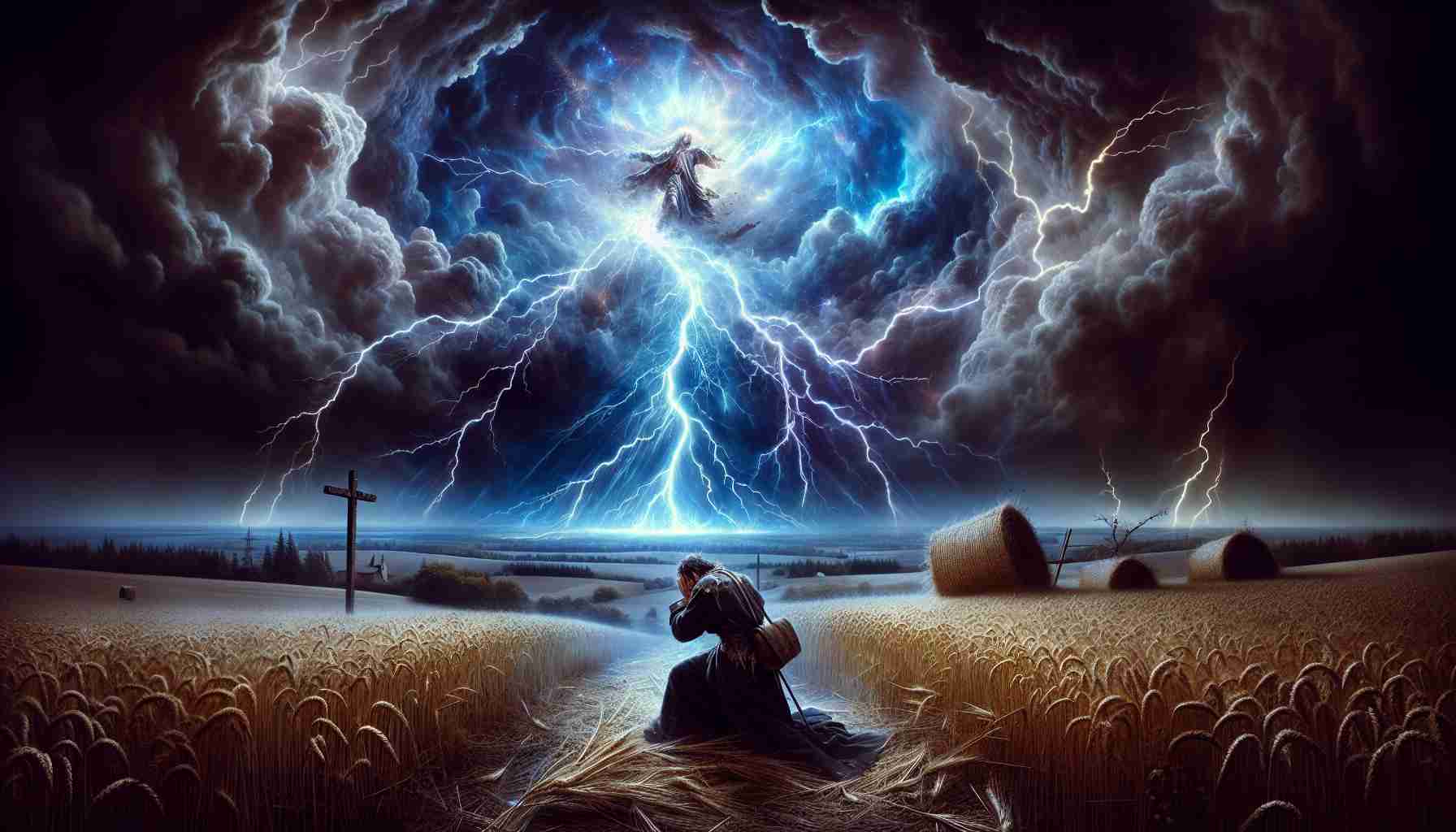

The air hung heavy with the promise of rain as Martin trudged along the narrow road toward Erfurt. His satchel, filled with legal texts, bounced against his hip as thunder cracked in the distance. The fields flanking the path were thick with summer grain, swaying under a sky that darkened like ink spilled from heaven itself. Farmers had long since fled indoors; only the trembling wind and gathering clouds bore witness to the solitary figure pressed forward beneath the weight of gathering dread.
Then it came—sudden, blinding, pure. A bolt exploded mere paces from where he stood, searing the earth with fire and baptizing the senses in sound. Hands thrown over his ears, the young scholar dropped to his knees. The second bolt answered the first. The sky groaned like judgment. Drenched and wide-eyed, senseless with fear, Martin clutched at the mud and screamed the vow that would alter history.
“Help me, Saint Anna! I will become a monk!”
How strange, that a cry born from terror would echo through cathedrals and courts for centuries to come.
He arrived at the gates of the Augustinian monastery weeks later, abandoned by the dreams of legal prestige once nurtured in his father’s house. The cloisters were cold, stone veins tracing the paths of silence and prayer. Here, Martin sought peace, but silence did not soothe him. The crack of thunder survived in memory, reverberating through sleepless nights of fasting, flagellation, and unrelenting confession.
Romans 8:28 whispered its promise—“And we know that in all things God works for the good of those who love him.” A comforting verse, but to Martin, comfort was elusive. What good could emerge from a vow born of fear? Yet amid candles and censors, in ink-stained margins and the rustle of sacred pages, something began to stir.
He studied Augustine, then Paul—the former bound to monastic discipline, the latter to divine grace. In Paul’s epistles, Martin found not a ladder to salvation, but a door already ajar. “The righteous shall live by faith.” The words leapt from Romans, not as a dogma, but as deliverance. It was not by indulgence nor penance, he saw, but by grace alone that man stood before God.
Years passed; his fingers darkened by ink, his thoughts sharpened by Scripture. Nails would one day drive ninety-five theses into a Wittenberg door, but the first hammerstroke had fallen beneath that lightning tree at Stotternheim.
The road that led him there had not ended—it had only changed direction.
Centuries later, a weathered cross marks the field where Luther fell. Locals call the spot Donnersteinfeld—"thunder stone field." Some whisper that storms hesitate above it, as if nature honors the vow once spoken there. Pilgrims pause in the hush, toes sinking into the soft earth, imagining the monk-to-be huddled in terror.
Scholars debate the depth of his fear and the sincerity of that moment. Was it raw emotion, filial guilt, or divine orchestration? Even Luther would wrestle with its meaning. Yet without that storm, there may have been no Reformation. God had gripped a man through trembling hands, through drenched robes and rattled bones—and steered him to Scripture’s heart.
Yes, fear led him. But God had used it—not as a chain, but as a key.
And through that unlocked door marched truth, both ancient and new—truth forged in thunder.